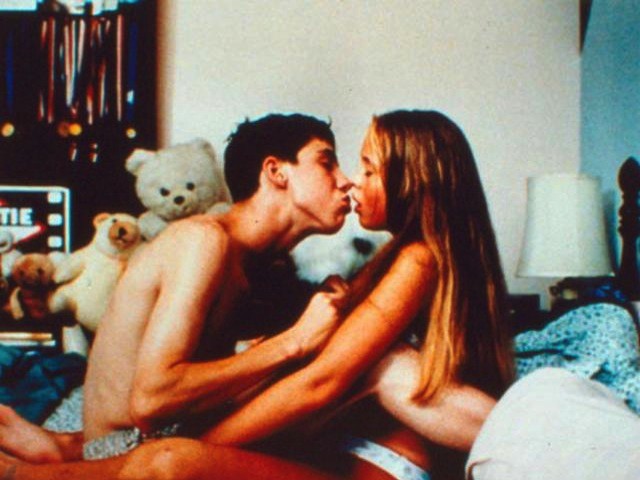Another Delightful Movie From 20 Years Ago
by Alexandra Molotkow

Reading Rolling Stone’s oral history of Kids, and re-watching the film itself, I’m asking the same question I’ve always had: how can I love something that makes me feel so terrible? It’s not just the content but the tone, the total lack of self-reflection which is also, of course, what makes it such a great film and document of its time and scene. Kids is definitely a work of art, but it’s probably evil; mostly because its makers didn’t care about evil.
Unlike Clueless, Kids feels 20 years old; at least, the cruelty in it is much rawer than anything more recent. It’s not that people are less cruel by nature, but I think it’s fair to say we’re working on it, and that work is largely reflected in the movies we champion. “Liberalism lacks a profound sense of evil,” Camille Paglia wrote, in a truly bonkers piece for Time last year complaining that sensitivity culture glosses over human nature (as opposed to, you know, limiting it for the good of all). “Coddled young women, she wrote, “do not see the animal eyes glowing at them in the dark.” But of course they do. Who hasn’t seen the animal eyes?!
Kids is animal eyes. I don’t remember feeling surprised. As a girl, when you learn about sex, you learn about ruination. You’re taught, or you absorb the suspicion that sex is a trick, and a disaster. That’s not just sex-negativity or internalized oppression or whatever, but a caution based on a very real history of terrible things happening to girls who have sex. And because there are guys like Telly who will tell you they care about you, take your virginity, spit on your parents’ carpet and let his friend, waiting out on the stoop, smell you on his fingers. Because you have to live with the consequences, whatever they are. You learn about predation and predation becomes part of the whole thing.
There are moral implications here, but you don’t necessarily understand them as a teenager. Watching Kids for the first time, at age 15, I responded to the sex scenes not just with horror but with something else, and the fact of that something else was even more horrifying. (Bully felt similar, though it’s not as good a film.) Watching it again as an adult, I’m more put off by the callousness: “Everything in the film had happened [in real life], except for Jennie. We had to have the maiden tied to the railroad tracks,” said Larry Clark, who was in his 50s when he made the film. “And I came up with this thing about a girl getting HIV from one sexual experience.” Korine: “The AIDS thing was like Jaws. It was a device that propelled it. We didn’t know anything about this disease other than that we didn’t want to get it.”
Without that callousness, though, it wouldn’t be Kids. The film is great for the same reason it’s horrifying: it lets things be what they are, without a thought to how they should be.